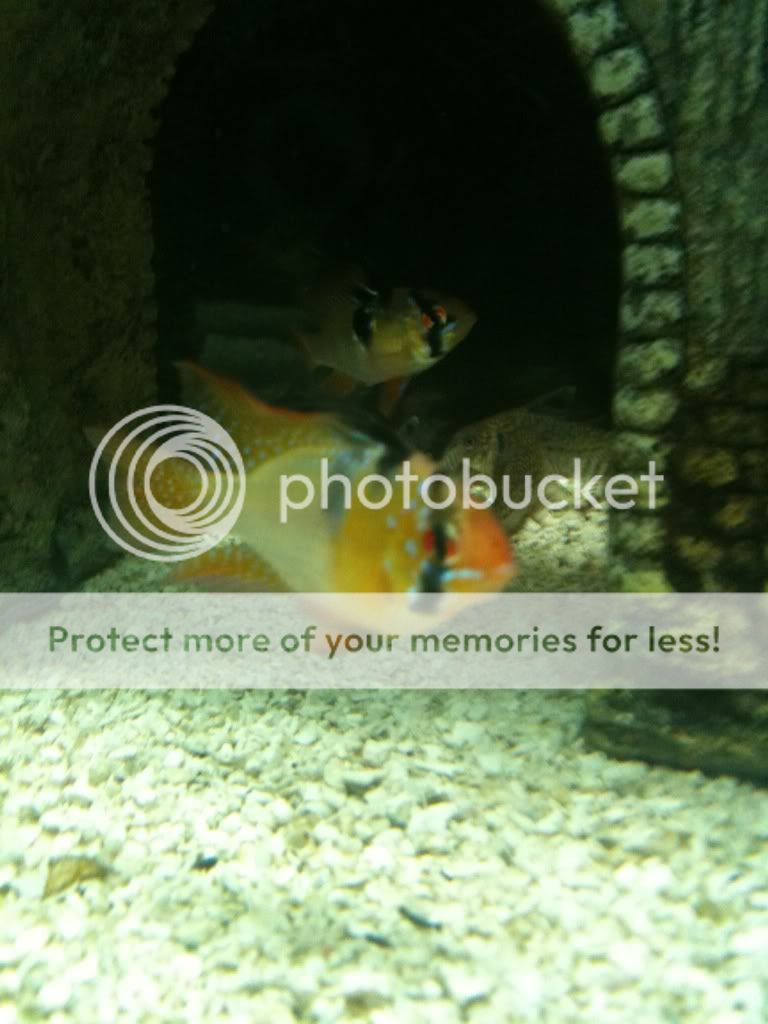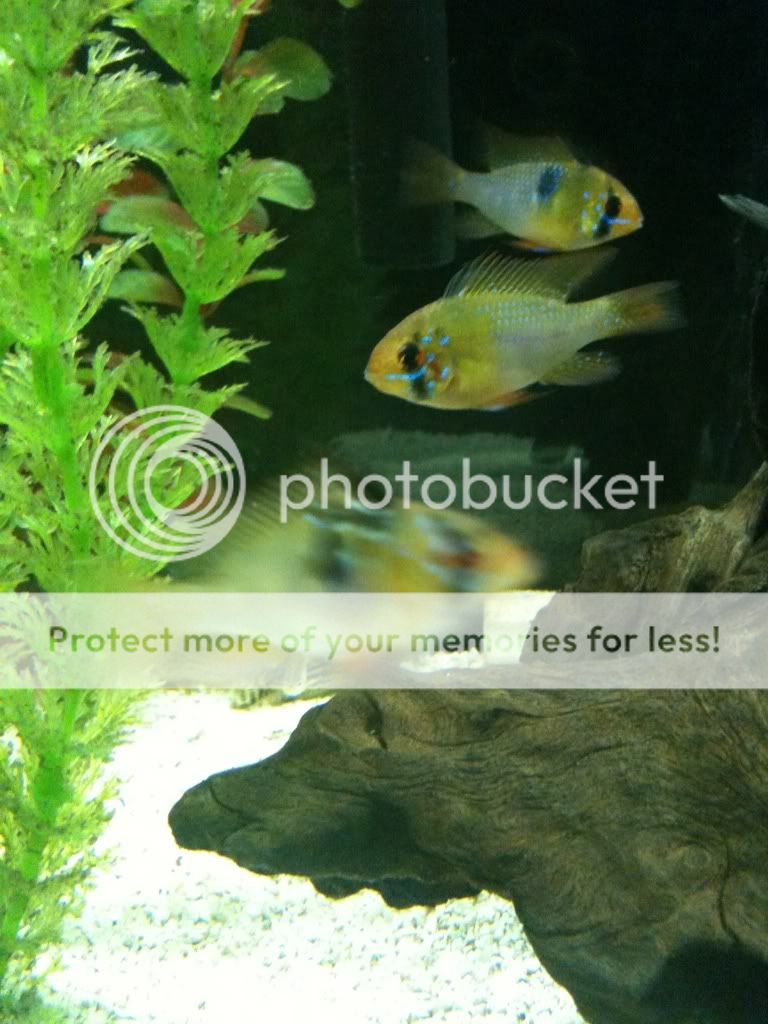I currently have a sand substrate installed in my 120 litre aquarium. It is manufactured by 'Caribsea' and it's called 'Torpedo Beach Instant Aquarium Sand'.
Has anybody used this or another product from the instant aquarium range, and if so, I'd be grateful if someone could tell me if it has the function of coral sand (coral sand highers the PH and water hardness) or anything else which highers KH, GH or PH water parameters?
I've been told that the product is PH neutral by a few people but I have a continuing problem with the way in which my German Blue Ram responds to the sand. He will rub himself repeatedly on plant leaves and the substrate in extremely quick succession and will waddle his fins at a rate that I've never experienced a fish do before. He is completely normal when swimming higher up in the water column but when he swims within 2-3 cm of the substrate he reacts as though something is attacking him. The other fish (Dwarf suckermouth, Dwarf Neon Rainbow, Black Neon Tetras) are happy and fine at all times and at all water levels!
I'm concerned that there might be an anaerobic build up in the substrate or possibly a source of nitrogen trapped which gets released into the water column when a fish swims over it. The sand is about 4cm deep; I see this has a sensible level since my tank contains plants and without sufficient sand I can't anchor any of the plants. If there are no toxic build-ups in the sand then I'm pondering if the sand itself is the problem.
Post copied from another topic of mine:
Has anybody used this or another product from the instant aquarium range, and if so, I'd be grateful if someone could tell me if it has the function of coral sand (coral sand highers the PH and water hardness) or anything else which highers KH, GH or PH water parameters?
I've been told that the product is PH neutral by a few people but I have a continuing problem with the way in which my German Blue Ram responds to the sand. He will rub himself repeatedly on plant leaves and the substrate in extremely quick succession and will waddle his fins at a rate that I've never experienced a fish do before. He is completely normal when swimming higher up in the water column but when he swims within 2-3 cm of the substrate he reacts as though something is attacking him. The other fish (Dwarf suckermouth, Dwarf Neon Rainbow, Black Neon Tetras) are happy and fine at all times and at all water levels!
I'm concerned that there might be an anaerobic build up in the substrate or possibly a source of nitrogen trapped which gets released into the water column when a fish swims over it. The sand is about 4cm deep; I see this has a sensible level since my tank contains plants and without sufficient sand I can't anchor any of the plants. If there are no toxic build-ups in the sand then I'm pondering if the sand itself is the problem.
Post copied from another topic of mine:
Thanks for the reply.
If it's not the substrate causing the rubbing then I'm clueless as to what is really.
My water stats are as follows (tested 16/12/10): total ammonia 0 ppm, nitrite 0 ppm, nitrate nearly 20ppm, PH 7.2.
No parasites are in the tank, if there was I'd expect all the fish to be rubbing.
I've just turned over some of the substrate and moved some of it so that I could make a little tent-like structure with a couple of pieces of bog wood so that the Ram can hide in it. After disturbing the substrate in this way he went absolutely crazy, rubbing himself on leaves/substrate etc.
Do any dwarf cichlid keepers find that these types of fish are easily irritated by solid objects making contact with their body? (objects really small and which are primarily detritus).



 /cgi.ebay.co.uk/ws/eBayISAPI.dll?ViewItem&item=110540021981&ssPageName=STRK:MEWNX:IT where it is described as 'Aquarium substrate' and mentions 'fish' in the title. That way, if it poisons the fish I'll be entitled to a refund of the product and compensation for the cost of the fish should they die. This is because i've paid money for something that is supposed to be safe with fish, if unsafe for use with fish, the seller has breached the part of the 'Sale of Goods Act 1979' which concerns 'fitness for purpose'.
/cgi.ebay.co.uk/ws/eBayISAPI.dll?ViewItem&item=110540021981&ssPageName=STRK:MEWNX:IT where it is described as 'Aquarium substrate' and mentions 'fish' in the title. That way, if it poisons the fish I'll be entitled to a refund of the product and compensation for the cost of the fish should they die. This is because i've paid money for something that is supposed to be safe with fish, if unsafe for use with fish, the seller has breached the part of the 'Sale of Goods Act 1979' which concerns 'fitness for purpose'.
